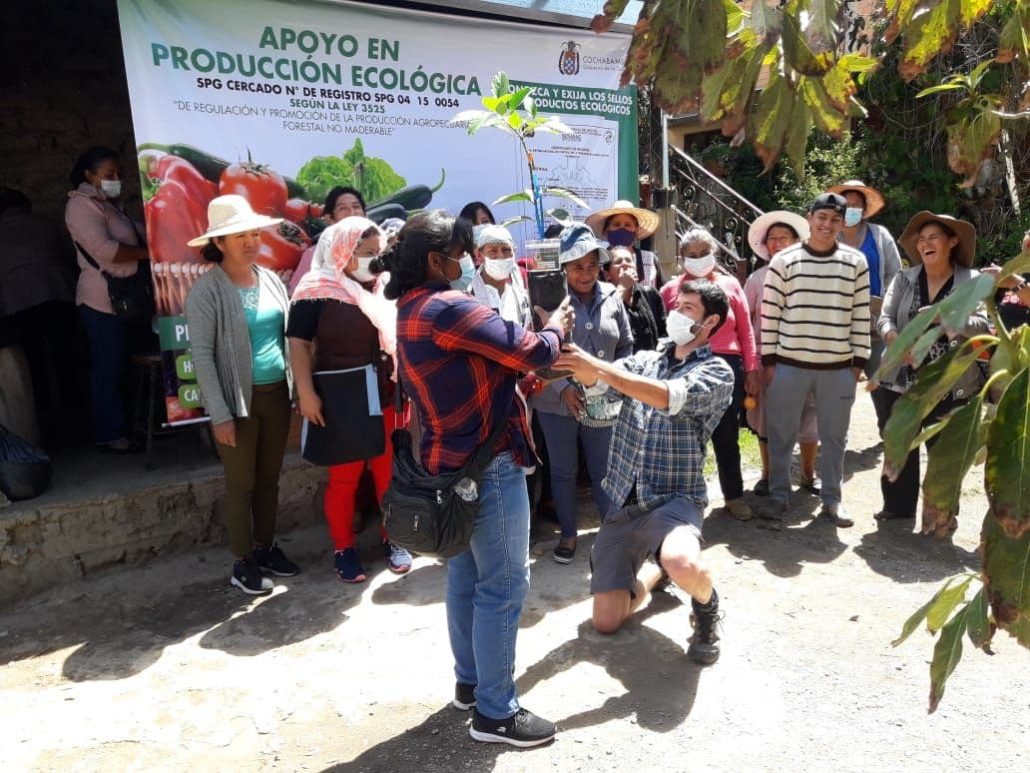15 January 2021
The pandemic is still raging in several countries of the world, and the climate crisis effects are increasingly tragic. These two global problems are linked with each other, and thousands of non-governmental organizations, public institutions, and private companies are brainstorming ideas to tackle them together. Replanning a healthy, sustainable, and climate friendly post-Covid19 society is one of the possible ideas. Large Tech companies have already started setting medium and long-term goals to reduce their impact on the climate and to decarbonize their business. Both Microsoft, Apple, Google, Facebook, and Amazon have openly declared that they will become carbon neutral or negative by 2030, 2040, or 2050.
As a developing environmental private business, the GreenMarked Team must also strive to reduce the impact of its activities on the climate. Our blog, Telegram and social media accounts rely on third-party servers that drain electricity generated with fossil-fuels. Our detox camps in the mountains force dozens of participants to use their carbon-emitting vehicles to reach the destination. We must also do our part to help the environment. We have not set any 2030, 2040 or 2050 climate goals like Microsoft and Co., but our effort to reduce our ecological footprint has already started.
Last December 15, we signed a partnership with the Bolivian environmental Foundation AGRECOL Andes to support the plantation of local Bolivian trees in the city of Cochabamba (BO). The partnership aims to offset carbon emissions and fight the global climate crisis, and it officially marked the kick-off of our “Native Carbon Tree” project that will last the whole year.
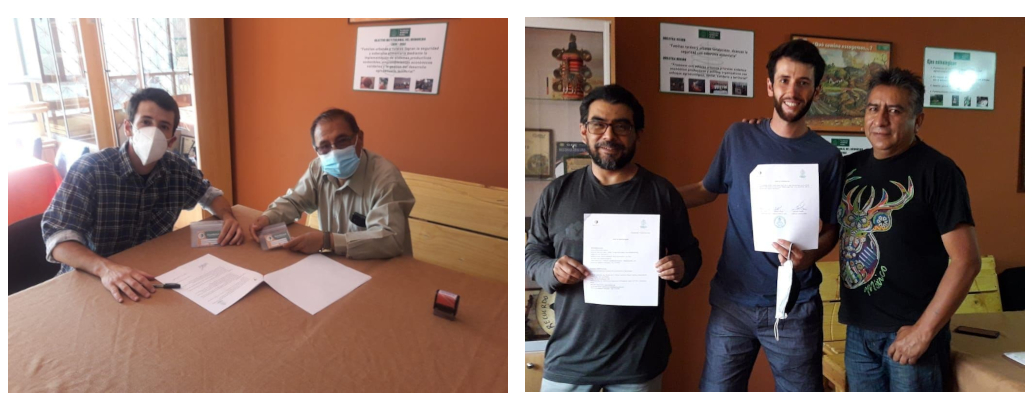
Fig.1 & 2: Mark L. Miller, head of the GreenMarked Team, and German Jarro, Executive Director of the AGRECOL Andes foundation signing the letter of partnership (photo to the left). Mark L. Miller in the middle, Alexander Espinoza and Alberto Cárdenas, agronomists at the AGRECOL Andes Foundation, to the sides (photo to the right). Photo source: AGRECOL Andes Foundation, 2020.
For every GreenMarked member registered in 2021, a local and/or native Bolivian tree will be planted in the metropolitan area of Cochabamba, specifically in the farm parcels of the SPG-certified agroecological producers supervised by AGRECOL Andes. Both new GreenMarked members and Bolivian producers will be taught about the importance of planting local and/or native trees, every time a membership card is sold, and a seedling is delivered.
The selected tree varieties will contribute to clean-up the air of one of the most polluted areas of Bolivia and will sustain the already existing local agroecological production. As a matter of fact, we have chosen two fruit varieties and a native tree to kick-off the project: the cherimoya (Annona cherimola), avocado tree (Persea Americana), and the American false pepper (Schinus molle). We still must calculate the exact amount of carbon sequestrated by the three varieties, but taking other reforestation projects as reference, we estimated that each planted avocado tree can absorb up to 500 kg of carbon in 10 years, meaning approximately 50 kg of carbon per year. As each avocado fruit is then sold at local markets for at least 3 BOB (the Bolivian currency), the benefits of supporting the plantation of local fruit trees are easy to see even without the math.
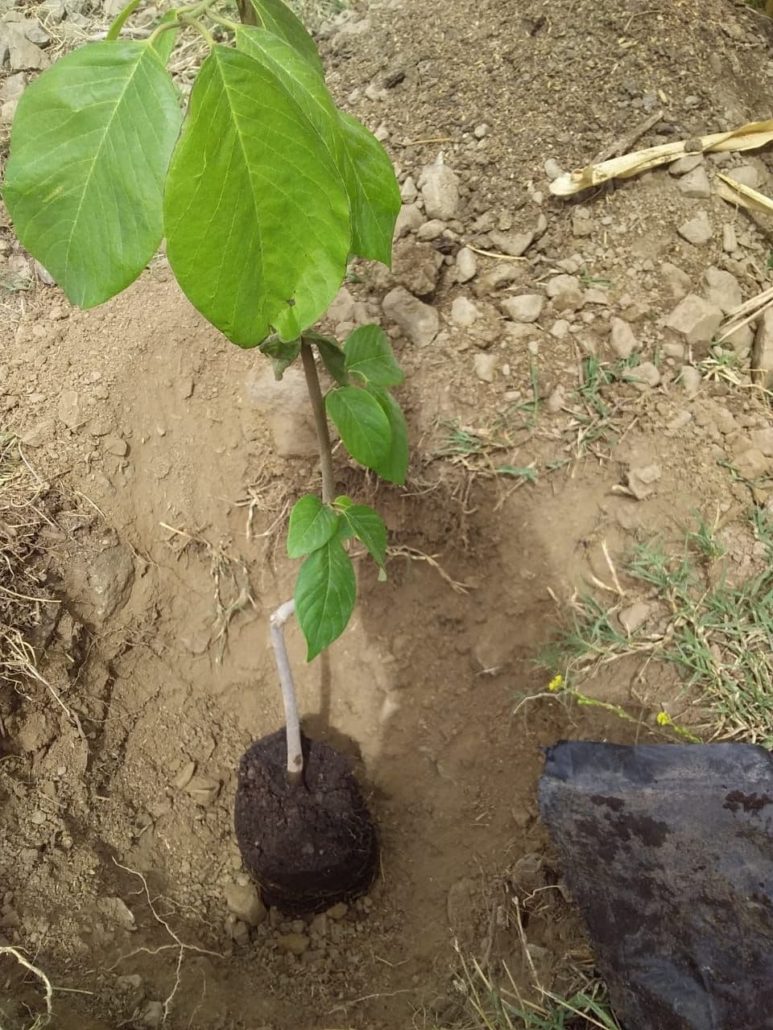
Fig. 3: a newly planted cherimoya seedling. Photo source: AGRECOL Andes Foundation, 2020.
The tree seedlings are bought and consigned to the farming community leader, who redistributes them to those farmers who want to adopt them. Farmers are deliberately let free to decide where the tree should be planted on their property, as they will be the ones directly managing its growth and well-being. In fact, AGRECOL Andes will provide free technical assistance for the tree management and seed regeneration when needed. The GreenMarked Team, instead, will dedicate 10% of its 2021 membership card sales income to the “Native Carbon Trees” project and will consign it to AGRECOL Andes for the tree purchase, delivery, and supervision. In truth, the GreenMarked Team will deliver an additional 1€ per membership card sold to help covering the first-year project management costs.
To bridge the GreenMarked members to the local producers, each planted tree will be labelled with the membership card of the tree donator, and will be photographed at the beginning, middle and end of the year to monitor its growth.
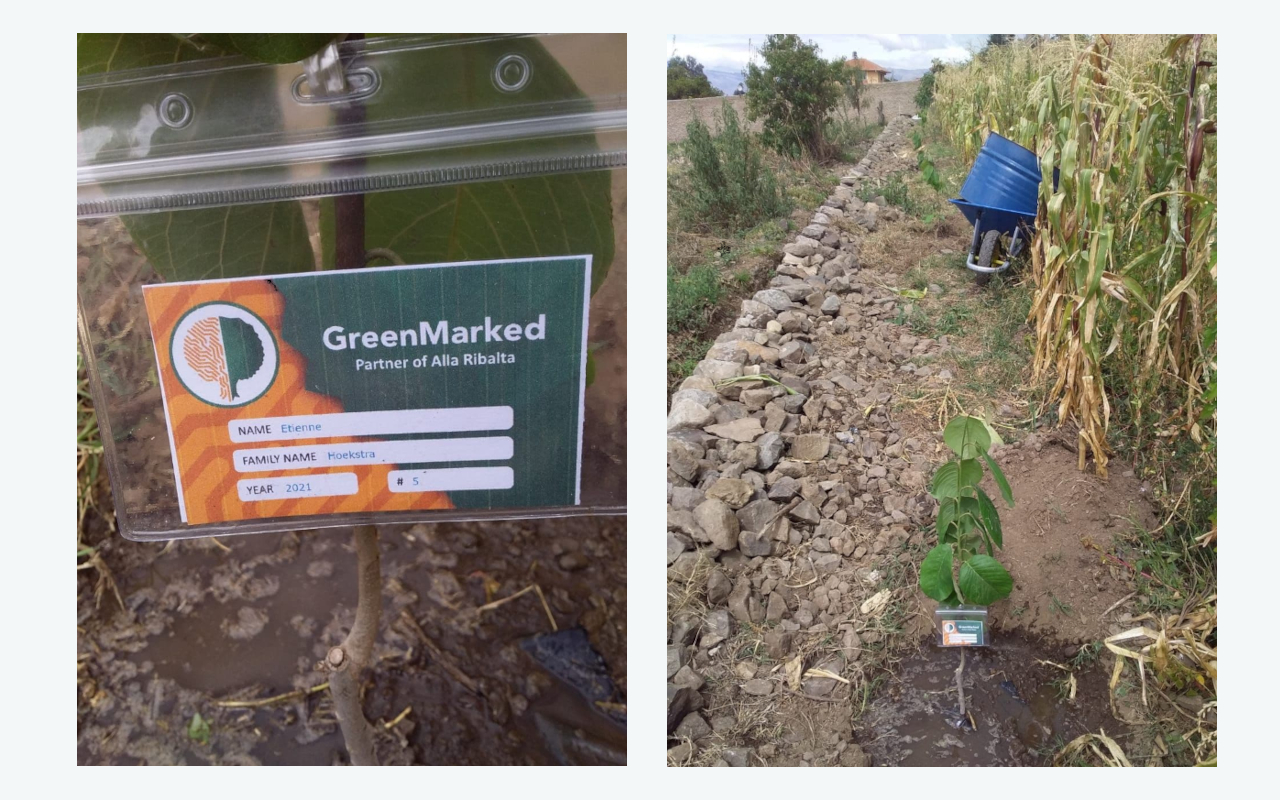 Fig. 4 & 5: the labelled cherimoya seedling no. 5 (photo to the left). Seedlings planted on the edge of an agroecological parcel (photo to the right). Photo source: AGRECOL Andes Foundation, 2020.
Fig. 4 & 5: the labelled cherimoya seedling no. 5 (photo to the left). Seedlings planted on the edge of an agroecological parcel (photo to the right). Photo source: AGRECOL Andes Foundation, 2020.
On December 17, the first seven cherimoya seedlings were delivered to the farming communities of Taquiña and Tirani, in the north of Cochabamba. All trees were labelled with the membership card of the first seven GreenMarked members.
Today, the number of membership cards has risen to sixteen and we have also started selling individual trees for 10€: six were sold, so far. Consequently, fifteen new seedlings will be bought, delivered, and planted by the end of the month: one per each new sale.
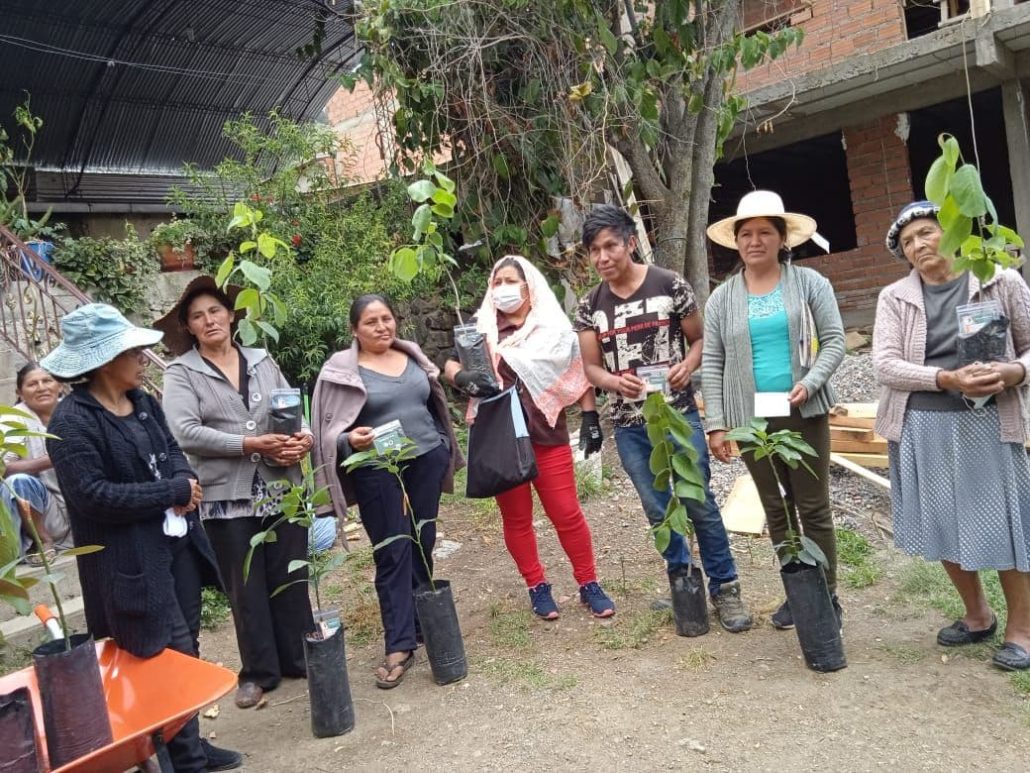
Fig. 6: the first seven cherimoya seedlings delivered to the first seven agroecological producers on December 17, 2020. Photo source: AGRECOL Andes Foundation, 2020.
We cannot wait 2030, 2040 or 2050 to tackle the climate crisis. We must and will start now.
If you are interested in buying a Bolivian carbon tree (10€), click here to pay quickly on PayPal. Type in “Native Carbon Tree” project in the message box, as well as the preferred tree variety (cherimoya, avocado or American false pepper), and the name to write on the tree label. Text us at @greenmarked_info if you do not have a PayPal account, you want to pay through IBAN or need more info.
